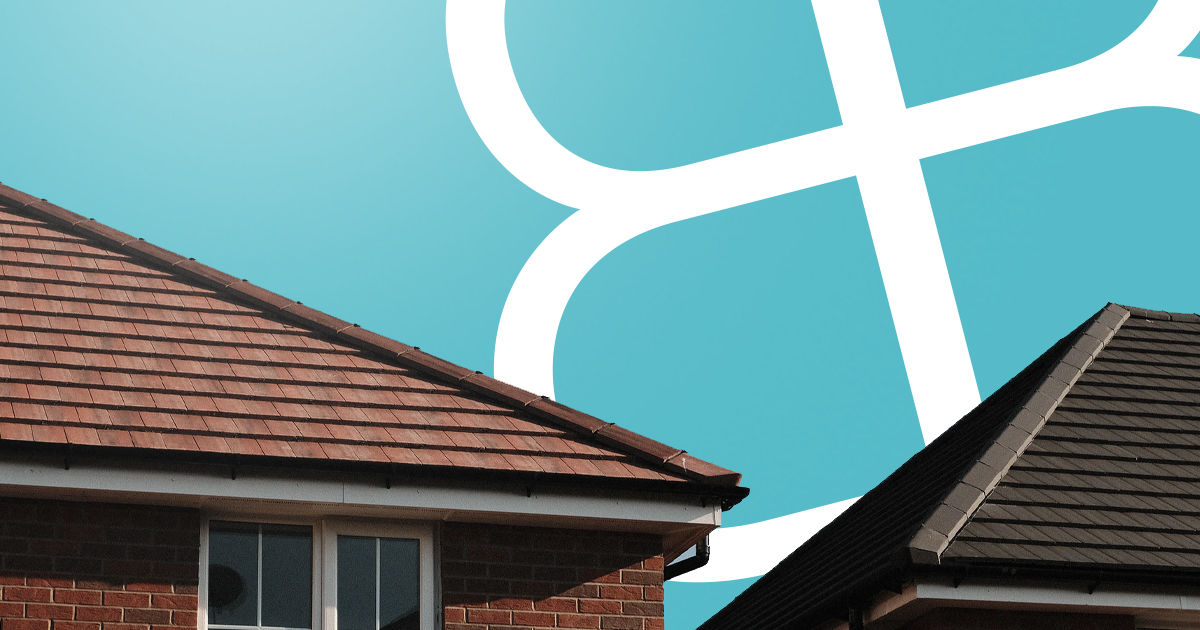Getting A Joint Mortgage With Parents

With mortgage lenders requiring large deposits and having strict lending criteria, plus the added complication of high house prices, it can be very difficult for first-time buyers to get onto the property ladder. The average first-time buyer requires a £16,000 deposit, which many people are not in the financial position to provide in the early stages of their adult life.
Fortunately, there are options other than taking out an individual, standard mortgage that can help people to buy a home. As well as the government Help-to-Buy schemes and guarantor mortgages, another option for first-time buyers is to get a joint mortgage with parents.
While the idea of buying a property with your parents might not be ideal, if it is the most suitable option then it is worth considering if your parents are happy with the terms of the joint mortgage.
Gifting vs Loaning a deposit
Before you explore the idea of taking out a joint mortgage, an alternative option to consider is your parents gifting or loaning your deposit, rather than taking out the mortgage with you.
If your parents are able to provide the required deposit, this could help you to get your mortgage approved. Generally, lenders will prefer the deposit to be gifted, so that you are not accumulating additional debt that will need to be repaid. The mortgage lender will take the repayments into account when assessing your affordability.
There are some potential tax implications to be aware of if your parents pay your deposit. For example, if your parents die within 7 years of the payment, it could be subject to inheritance tax. This would only be applicable if their estate is valued at over £325,000.
Another tax consideration is that parents are able to give you £3,000 tax free per year, with an additional £5,000 on your wedding year. Additional payments would usually be subject to tax.
Parents remortgaging for the deposit
If parents do not have the money readily available to gift or loan, there are some other ways they can raise funds for the deposit. One possibility is to remortgage their own property to access their equity and receive a lump sum for the deposit.
This will generally be a last resort because it would mean that parents have to make repayments on the remortgage loan. It could also potentially put their own home at risk, if they were unable to make the repayments for any reason.
Free phone and video consultations are provided in the U.K.
Get StartedBuying a home together
While being given a deposit from parents is an ideal option for some situations, this will not work for all circumstances. For example, you may need to borrow a larger sum than the lender is prepared to approve for a sole application in your name. If you apply for a joint mortgage with your parents, you could be able to buy a higher value property if they have income to boost your affordability.
Another reason some people take out a joint mortgage with their parents is to make it easier to get an application approved. Many applicants who have been living at home with their parents up to the point of applying for a mortgage do not have much credit history.
If they have never had bills to pay or taken out any credit, there will be no evidence of making regular payments or repaying debt. This lack of credit history can often result in individuals being declined for a mortgage application, as the lender will want to see evidence that the applicant is reliable at repaying finance.

We mentioned the tax implications of parents paying your deposit in the previous section and there is also a tax implication when parents take out a joint mortgage. As the property you are buying would usually be classed as their second property, parents could be subject to capital gains tax if the property gets sold in the future.
Joint mortgages can be a good option but lenders will generally only allow parents who are still employed to be on a joint mortgage, so their age and employment status will usually determine whether it is an option for you.
Guarantor mortgages
An alternative option to taking out a joint mortgage is to apply for a guarantor mortgage. A guarantor mortgage is where a parent provides collateral to secure the mortgage loan. This could be in the form of using savings as collateral, or it could be secured against the parents’ home.
Lenders are more likely to approve these types of mortgages compared to the individual applying on their own, as there is less risk for the lender. This is an option that carries more risk for parents, as they could potentially lose their savings or even their home, if their child missed some mortgage repayments.

If the child defaults on their mortgage, the parents would be held responsible for the debt, which could result in the lender using their savings or in a worse-case scenario, repossessing their home.
Guarantor mortgages tend to have higher interest rates than standard mortgages, so this is one of the main disadvantages of choosing this type of mortgage.
See What Our Clients Have To Say
Tips for parents who want to help their child buy a house
Taking out a joint mortgage with your child is not an easy decision and it should be given careful consideration before committing to it. If you have paid off your own mortgage, you were probably looking forward to having more financial freedom and taking out a joint mortgage will jeopardise this.
Before you make the decision, here are some tips:
Speak to a mortgage expert
Before taking out any large financial commitment, it is always a good idea to get advice from an expert. A broker such as Boon Brokers will be able to talk through the risks of taking out a joint mortgage and explain the tax implications and other details that you should be aware of. A broker will also be able to discuss what other options are available to determine whether a joint mortgage is the best choice.
A whole-of-market mortgage broker like Boon Brokers will also be able to find the best joint mortgage deals that are available on the market, which could save you a considerable amount of money. They can also prevent you from taking out a mortgage that is riskier than alternatives that are available.
Understand the tax implications
It is important that you understand how taking out a joint mortgage or paying a deposit will affect your tax liabilities. By seeking expert advice, you should be able to find a solution that has minimal tax implications.
Update your will
If you do decide to take out a joint mortgage, you should also update your will to indicate what you want to happen to your share in the property. If you have multiple beneficiaries, it is important that this is clarified.
Make sure you understand what you are committing to
Taking out a joint mortgage is a huge financial commitment and even though you will want to help your child to buy their own home, it might not be the right choice for your own financial circumstances.
You should consider what would happen in the event that your child lost their job and was unable to continue repaying their mortgage. If you would not be in the position to cover the payments for a length of time, then you could end up in a really difficult financial situation.
Before you agree to take out a joint mortgage, talk through all of the terms and conditions with your mortgage broker, so that you know exactly how you could be financially affected by different scenarios.
Have many discussions with your child about the mortgage
It is important that you are clear about the details of the arrangement and that your child understands the consequences of missing a mortgage payment. If your child is not used to making monthly payments, this will be a big change to their financial management.
If they have not been making rent payments, then they may find it hard to adjust to the new financial responsibilities of mortgage repayments. In the lead up to taking out the mortgage, you could ask your child to put the same amount into a savings account to show that they can afford the payments.

They can then use the money saved up to put towards the mortgage or solicitor’s fees, while giving you more confidence that they can adjust their lifestyle to make sure the mortgage payments are made each month.
It is also important to be clear about whether a deposit is being loaned or gifted, to avoid difficult conversations in the future. If you are providing the deposit on a loan basis, you will need to agree a repayment arrangement so there are no misunderstandings.
If your child has a partner who will be living in the property, or may even be on the mortgage, you should also discuss protecting your deposit in the event that they split up. You can pay for a solicitor to draw up a ‘Deed of Trust’ that will protect your money by showing how the equity in the house would be divided if they split up.
How long does a parent stay on a joint mortgage?
In an ideal situation, the joint mortgage would run for a couple of years (usually the fixed rate period to avoid early repayment charges). After this period, the child would hopefully be able to be approved for a new mortgage as a sole applicant.
However, it could take longer than this and factors such as whether their income increases and whether they take on any additional debt will impact whether they are able to get a mortgage in their sole name.
Another possibility could be that they are with a partner who wants to be added to the mortgage, which could mean lenders are willing to provide a joint mortgage based on their joint incomes. So, the parents could be taken off the mortgage and replaced by the partner.
Is a joint mortgage right for our family?
There are many factors to consider when deciding whether a joint mortgage is right for your family. Parents will need to decide whether they can take on the risk and the additional financial impact of taking out a joint mortgage. For example, it could mean that they are unable to take out a loan for something else like a car or buy a holiday home.
Parents might also need to consider what would happen if another child wanted to buy their own property and asked for financial support in the future. Taking out a joint mortgage with one child could mean you are unable to support another child, which could cause family problems.
If your child is unable to make repayments on the mortgage, this could also negatively affect your relationship and it could potentially cause a lot of arguments. However, if there are no issues with repayments, it could all go smoothly and you have been able to support your child in buying a home with no disruption to your own finances.
It is not just parents who need to evaluate the decision, children should also think about how a joint mortgage could affect their relationship with their parents. If doing it on their own is important, having this financial tie to parents could be problematic. If parents stand to be financially impacted by missed mortgage repayments, they are going to take a bigger interest in how their child is spending money. Parents might have more opinions on their child’s financial decisions because of their vested interest.
Contact Boon Brokers for expert advice on joint mortgages
If you are considering taking out a joint mortgage as a family, you should speak to a mortgage expert. Boon Brokers is an impartial, fee-free broker with whole-of-market access who can help you to decide whether a joint mortgage is the right choice for your family’s circumstances.
Gerard BoonB.A. (Hons), CeMAP, CeRER
Gerard is a co-founder and partner of Boon Brokers. Having studied many areas of financial services at the University of Leeds, and following completion of his CeMAP and CeRER qualifications, Gerard has acquired a vast knowledge of the mortgage, insurance and equity release industry.Related Articles
- How Long Does A Mortgage Application Take?
- What Should I Ask When Buying A House?
- How To Improve Your Chances Of Getting A Mortgage
- Purchasing A Property With Shared Ownership
- How To Get A Mortgage With A New Job
- How Long Does A Mortgage Application Take?
- What Is A Mortgage In Principle?
- Preparing For An Interest Rate Rise
- Advantages Of A Mortgage Broker
- What Is A Tenants In Common Agreement?
- Everything You Need To Know About Buy To Let
- What Is A Deed Of Covenant?
 Authorised and regulated by the Financial Conduct Authority. No: 973757
Authorised and regulated by the Financial Conduct Authority. No: 973757




